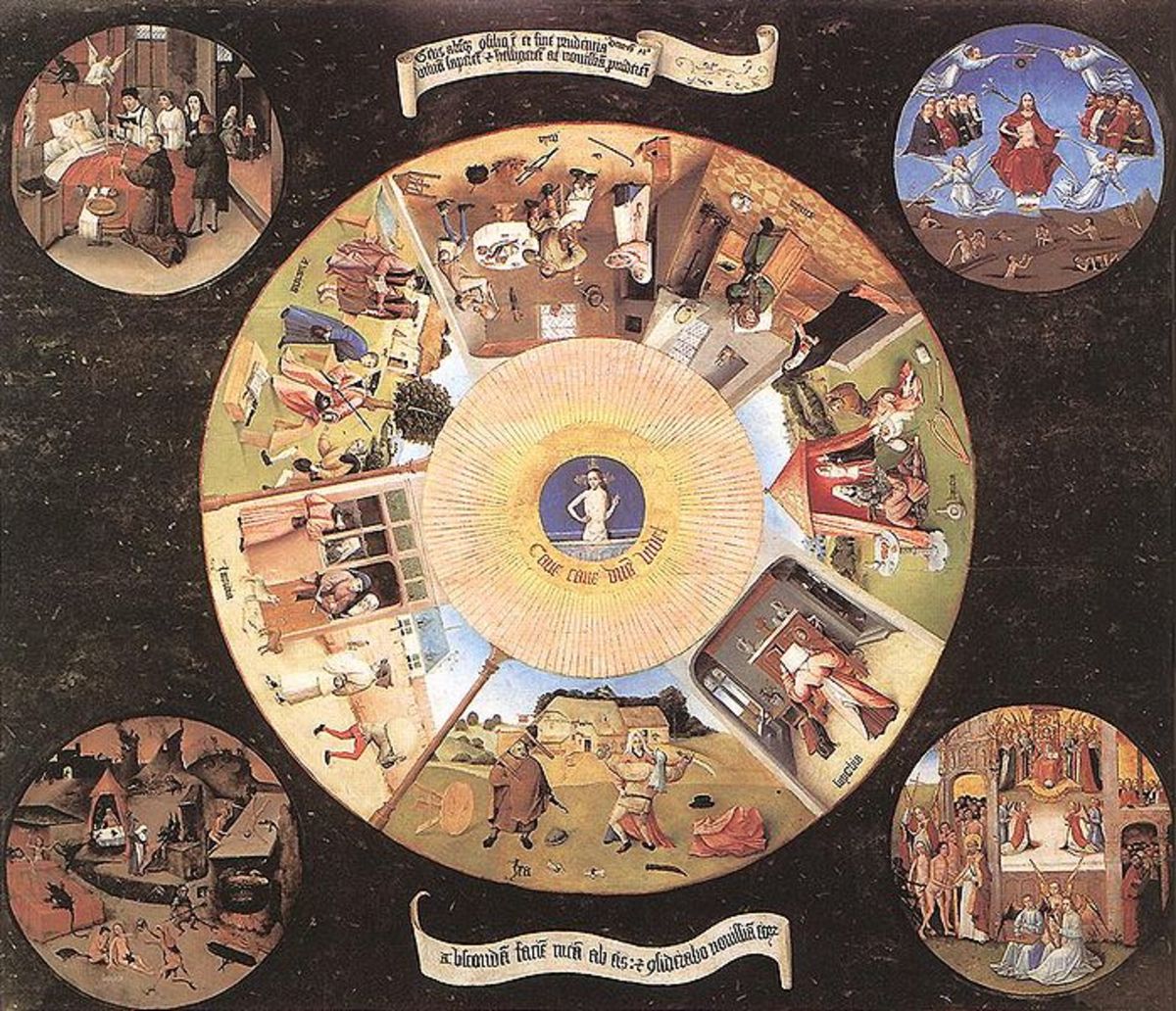The Economics of Happiness

Beginning with the end in mind . . .
I am happy. There, I said it. There were so many years when I couldn't have accurately made that statement. In the past, I've been through periods of time when I was so self-reflective (ie "in my head") I couldn't see that as possible. Our culture confuses us about happiness - what it is, who has it, how to get it. That isn't what this article is intended to do - though that would be a satisfying outcome.
The truth is, our expectations play a lot into whether we feel fulfilled, satisfied, and by extension, happy. And we set ourselves up for failure by setting up expectations that are not well thought-out, or that we can't reasonably attain with the set of conditions, time limits, etc. that we have. Plus, we have this inner sense that tells us what we deserve, based upon our upbringing, peer group, sense of self-worth, and so on.
I've been thinking quite a bit about the state of our economy right now. Pundits decry our economy as failing, markets are taking a dive, people are losing their homes and jobs, and the need for social services has rapidly increased. How is that? Where did the money go? How about the value? What's causing all of this to occur?
Clearly, many things, which I'll leave it to the experts to analyze. I'm most interested in the big picture.
Consumer confidence
The United States economy performs well based upon a number of important indicators, probably the most notable of which is the Consumer Confidence Index. This index measures the degree to which consumers (that's you and me) feel optimistic about our economy, reflected by how we spend our money, how much we save, and how we feel about the current and future condition of our economy. It's kind of scary, isn't it? Our economy, the foundation for economies worldwide, is based on optimistic feelings about the future.
Does that scare you? Why? Because you wanted there to be a more solid, bedrock reason for things to work as they do. Okay, fair enough. So let me ask you - what would be a more successful foundational basis for this? You think it's simple? Read up on Adam Smith and An Inquiry into the Nature and Causes of The Wealth Of Nations.
Honestly, though, I don't want to get into a discussion on economics because, like talking about selling insurance or arguing religion with a door-to-door evangelist, it can be like the sound of fingernails on a chalkboard!
The key here is to understand this fundamental concept - optimistic feelings determine the success of our entire global economic system. Boom.

Your personal responsibility
In college, I took a fascinating and thoroughly confusing course on Existentialism. I've always loved learning, and the instructor had a heavy French accent, criticized everything with splashes of red ink all over my papers, then rewarded me with a "B". I figured somewhere in the craziness I must have learned something! Here's a nugget I remember from his course:
You need to look at every action you take as though it has an impact, as though every other person also took that same action or made that same decision. If you decided not to vote, then assume no one else will vote. If you steal a pen from the store, assume everyone will steal a pen from the store. Make sense? The key to remember here is that what you do or say matters in the greater picture.
Following so far?
Taking this a step further, there is a movement underway that follows the premise that intention - that is, what you intend to occur - is a real, finite thing that affects the outcomes of events. Dr. Wayne Dyer writes about this in his book, The Power of Intention, and Lynne McTaggart takes it to another, scientific level in
The Intention Experiment, where a large group of people in one part of the world "intend" for a leaf to glow in a lab on the other side of the world - and it does.
The bottom line conclusion you need to reach is the undeniable fact that we do and how we act have a material impact on outcomes. Coupled with these facts is the realization that our optimistic expectations have a very real impact on our economy, and by extension, our future.
Your negativity or passivity is making this mess, and is amplifying it until you, we start to do something about it.
Ready?
The solution!
There are myriad books, CDs, DVDs and other media with information you need to help to turn from passivity to positive action. One of my favorite quotes is from Johann Wolfgang von Goethe:
"Whatever you can do or dream you can, begin it. Boldness has genius, power and magic in it."
Here are my nuggets:
1. Commit to being happy as a goal. No, don't click to the next bullet, or roll your eyes at the obvious nature of this statement. Most people simply see happiness as an outcome, but not as an objective. Do you see the difference? Internalize this statement - how can you reasonably get anything you want without commiting to it as an end you wish to reach?
2. Seek knowledge, personal and spiritual growth. Specifically, look for inputs into your mind that move you toward that commitment you made above. This isn't simply that pedantic statement "be positive", although I believe you will realize that truth in time. This means to stop letting your belief system about what is and what could be get dictated by whatever happens around you. You're not a chameleon. You have choices here - use them wisely. By advice is to not get locked into one information source, one system, set of facts or beliefs. By doing so, you surrender your personal will and ability to grow to another. No good leader should expect that you will not, with a sense of mystery and wonder, set about in search of the truth as it reveals itself to you. You are seeking to nourish YOU, not a system or particular dogma - I don't care how wonderful it seems to you. Validate, verify, make it real for you.
3. Seek first to understand, before demanding to be understood. I can't tell you how often I watch people talk at and over each other, with escalating frustration on both sides, and neither has any idea what the other was trying to convey. Here's what true listening feels like - for the brief time when the other person is speaking, you are watching her expressions, feeling the inflection of her voice, internalizing her intent, imagining how she arrived at the conclusions she is relaying to you, from her life's perspective, not your own. You repeat what she's said back to her to demonstrate your understanding. You ask if you've heard her fully and clarify any misunderstandings. You pause, and THEN you speak with what you want her to understand.
4. Revise your expectations. Step outside yourself for a moment and think about the artificial limits you've placed on yourself. Obviously, some have value. I have no intention, for example, of trying to beat LeBron James in a 1 on 1 basketball game. There are so many, however, especially where it comes to issues of expectations that are simply not true. If you find yourself feeling like you can't find the person you want to spend your life with, perhaps you could focus instead on being the kind of person someone would want to spend their life with - and perhaps someday, inexplicably, it may happen. The beautiful thing with this example, is that you'll find it really doesn't matter anyway, because I believe you'll find peace in your focus on others! The important take away here is to stop and question some of the value statements you make and just commit to asking yourself, "is this true?" If not, consider the possibility you could have what you want.
5. Begin to convey your strength and optimism outward. I believe with the right information and emotional nourishment, you will realize that you have influence on others beyond what you ever imagined. Truly inspirational people do so daily in small, unimportant ways. Holding a door open for someone. Defusing our own anger while driving in traffic. A genuine smile. Small gestures of compassion. Remember that "Christmas spirit" we used to spend time with as a child? When's the last time you watched It's a Wonderful Life?
We live in an amazing country in a remarkable time in history - the standard of living we enjoy, the choices we have, the possibilities we have the capacity to create. I shake my head at the defeatist notion that the party's over here in our economy. Really? I - for one- am not buying it.









